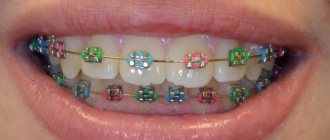The word is a very powerful tool with which you can convey your point of view to others and even win them over to your side. But for it to work for you and not against you, it is important to be able not only to choose the right words, but also to pronounce them.
How to improve speech and diction at home if you don’t have the time or desire to work with a specialist or attend public speaking courses? Below we give some tips that will help you achieve noticeable results.
What is diction
Importance for humans and society
If a person pronounces words clearly, emphasizes them with appropriate intonation, and has a pleasant timbre of his voice, then he has good diction and speaking technique.
And, on the contrary, if a person speaks indistinctly, monotonously, too quietly or too loudly, swallows words or draws them out unnaturally slowly, then his diction and speech technique are not in order.
Being in society, communicating with others, a person creates an impression of himself through his speech. Clear and correct diction makes a person pleasant to communicate with and puts him at ease.
A person with poor diction inevitably has difficulties. It is difficult for him to convey information to his interlocutor. Due to the efforts to make out his words, attention is scattered and the essence of what was said slips away.
A person's speech is an expression of his nature. It is closely related to how a person perceives himself.
A person who is unsure of himself, doubts, and cannot make a decision or take responsibility usually speaks quietly, incoherently, swallows words or slows down the pace of speech. The impression he makes on those with whom he communicates is, to put it mildly, unimportant. The response may be irritation or disappointment, but in any case - the desire to end the unpleasant communication as soon as possible.
Beautiful diction is characteristic of people with leadership qualities. This is self-confidence, the ability to calmly overcome difficulties, self-control, the ability to speak and convince. The speech of such a person is distinguished by clear pronunciation, expressiveness, and pleasant sound. Communication with him is a pleasure.
What does diction depend on?
Diction (or clarity of speech) depends on the functioning of the speech apparatus. It includes organs:
- hearing,
- articulation,
- breathing
- central nervous system.
Vowels and consonants are directly created by the articulatory apparatus. All defects of these organs will affect the clarity of pronunciation of sounds.
Beautiful speech and its enemies
Beautiful speech is, first of all, competent speech. Many stylistic mistakes can create a false impression about you, and in some cases, interfere with communication. Let's determine what other obstacles are encountered on the way to beautiful speech.
1. Parasite words
You probably know exactly what words we are talking about. All sorts of “well”, “this”, “uh”, “like” and similar words, used without urgent need, will not decorate your speech at all - they are empty and have no meaning!
2. Swear words
There is no need to explain anything here. If you want to create a positive impression, then completely exclude swearing from your speech, even when it seems to you that it is quite appropriate.
3. Slang
Many people gradually began to introduce slang into their speech, believing that it helps them keep up with the times. However, it is worth remembering that not every interlocutor is familiar with new buzzwords that can quickly sink into oblivion, and in general, he is not required to know them. Your communication will be much more difficult than it could be if a person periodically has to ask what you mean by this or that expression.
Watch how you speak. Some people make their interlocutors involuntarily wince simply by starting a conversation. And it’s not a matter of swearing or filler words, but the way the voice sounds
It is very important to monitor its sound! Try not to speak loudly unless you are in a noisy environment - many people are irritated by loud noises
Also pay attention to whether your interlocutors often ask again about what you just said - in this case, it is possible that you speak very quietly or even mumble, which also does not add clarity to communication
Regularly monitor what you say and how you say it, and this will undoubtedly ensure your reputation as an excellent conversationalist. Remember that beautiful and clear speech will always be your advantage, and sometimes an advantage!
What you can do on your own to improve your speech
High-quality speech training is a process that must be supervised by a specialist. However, there are basic, initial steps that everyone can take on their own in order to see some first changes and, perhaps, think about later turning to professional training.
Breathing and warming up
The foundation of good speech is proper breathing, so watch how you breathe the next time you wake up. Usually, when a person is relaxed, when he has not yet jumped out of bed and ran to do things, the muscles that we need are working. So, try to feel them - what muscles work when you lie in a relaxed state? Do you have any tightness in your back? What do you breathe? I personally have not yet met people who, in a relaxed lying position, would breathe with something other than their stomachs - that is, the way they should breathe. When we breathe relaxed, moan, cough, laugh, our natural mechanisms work - we do all this with our abdominal muscles.
Many people who teach speech try to teach their students vocal breathing, which is not necessary, because speech and vocal breathing are different things. Yes, they have the same principle, but there are several nuances that are important for sound reproduction. The vocal voice differs from the speech voice at least in that it is more processed. If we all spoke in a vocal voice, we would sound like a caricature of an opera singer. In order for us to enjoy talking, so that the voice seems to pour out of our body, we need to take into account belly breathing techniques.
Right in the morning, lying in bed, looking at how your stomach breathes when you are relaxed, inhale and exhale “ewww”
with slightly closed lips.
Make sure that your chest does not move at this moment. After several “fuuu”s,
we inhale and exhale on “s”, as if squeezing the air out of ourselves with the abdominal muscles, all other muscles should be relaxed. Imagine that in your lower abdomen you have a reservoir of air (the air that we exhale is our potential sound), and you exhale all this air from the reservoir under pressure into your front teeth. Not in the top of the head, not somewhere in the back of the head, but in the front teeth and the sound “s”. And so 6-8 times, after which you need to get up and try to do the same exercise, but standing.
After you have realized that you are breathing correctly and there are no obstacles between your stomach and front teeth, we try to exhale along the same trajectory, without changing anything in the muscles, to the sound “m”
so that the teeth, upper lip, and wings of the nose rattle.
This is called a resonator - there are four of them in total, but since we only train basic things on our own, with this exercise we warm up the basic ones. The next step is to combine mooing with warming up the cervical and shoulder parts of the body, that is, when you breathe on “m”
, make several soft circles with your head in one direction, then in the other, up and down and left and right. Then we switch to the shoulders: we sound into the resonator and make circular movements in one direction on one exhalation, take in air - and in the other direction on the next inhalation. Why do we stretch our shoulders and neck? Because if they have any clamps, this also interferes with speaking well. For example, if the shoulders are raised, the voice does not sound smooth, but as if crushed.
Articulation
After we have stretched the body, neck and shoulders, we train a simple phrase: “Mom, mom, honey for us.”
, still speaking as if from the stomach.
With this phrase we learn to connect the correct consonant sound with vowels - we need to learn how to do this so that there are no gaps between “m”
and
“a”
- and then, finally, we move on to warming up the articulatory apparatus, doing articulatory gymnastics, warming up our lips and tongue and jaw.
Here are some of the simplest exercises for warming up your lips (you can easily see how to do them visually on the Internet):
— We stretch our lips with a “proboscis” and twist them from side to side. It is important to twist your lips and not work with your jaw - it is closed and does not help the lips, only the facial muscles work! We did this 8 times from side to side and released the tension, like horses do, with a kind of “pfrrr”
from the belly to the lips so that the lips tremble.
- Then we do the same thing, but now we move our lips up and down, also 8 times and also relieve tension.
“Now we turn on the tongue and, using circular movements on the inside of our mouth, we warm up the muscles of the cheeks and lips, and the tongue itself warms up. This is a hard exercise, the muscles get tired from it, but it is a wonderful fatigue. This should be done 5 times in one direction and 5 times in the other, pressing the tongue on the cheeks and lips. Relieving tension.
— After we have stretched the tongue and lips, we stretch the jaw. First, we simply knead the jaw joints near the ears with our fingers, then open our mouth so that the fingers fall into these parotid cavities, then we can move the jaw from side to side.
- There is another secret exercise - we take a marker, lipstick, mascara, pencil, in general, something oblong, and insert it into the mouth crosswise, clamping it with our teeth, checking whether the facial muscles are tense - they should be relaxed. In this state, we begin to say, for example, the following simple saying: “On Thursday the fourth at four and a quarter o’clock, four little black little devils were drawing a drawing in black ink.”
. Your task is to make the words sound as clear as possible, even in this awkward position. This will give you a great workout for your jaw, lips, and tongue, and when you take the marker out of your mouth, you'll immediately feel like you're speaking and sounding much easier.
In general, in the case of gymnastics of the articulatory apparatus, there can be no wrong exercises - do any that you find. The only point: make sure that when you start using your stretched speech apparatus, your lips do not become active and “dance” all over your face, it looks ugly, articulation should not irritate your listener. Look carefully at how quality TV presenters speak: they do not have excessive articulation, but their jaw opens well on stressed vowel sounds. There is probably not a single presenter who talks with his mouth closed and his jaw closed, but in ordinary life there are a lot of such people.
Diction
Diction can be thoroughly developed in just 3-5 days of classes, if you devote at least 2 minutes of your time daily to articulation exercises and pure speech. Pure twisters are special phrases and phrases, the same as tongue twisters, but we use them not to speak quickly, but to speak clearly.
An example of a pure saying: “There is a priest on a head, a cap on the priest, a head under the priest, and a priest under a cap.”
. Quite often, when people say it for the first time, they “swallow” half the sounds. Say this pure phrase, pronouncing the endings clearly and distinctly (you can record yourself on a voice recorder to listen from the outside). Next, pay attention to how you pronounce stressed vowels. They should be a little longer in sound and fuller of sound than other sounds. Stressed vowels are the core of a word; they are responsible for its volume and beauty.
And one more point that needs to be noted is fluency of speech: try to speak each phrase as one word, as a single structure. Words should flow one into another, you need to speak in perspective, and not put periods after each word.
Speech training does not belong to the category of processes that must be done in childhood. If you were not taught to speak correctly in childhood, this does not mean that you should give up on good speech, because a person has the opportunity to work with his voice at any age.
Exercises and texts for speech development (training)
The speech generation program includes several tasks. They will take 3 days to complete. When performing a new task, do not forget to repeat the previous one each time. First, practice for 15-20 minutes. Gradually increase the time to an hour.
- We replenish our vocabulary. You will need a dictionary and text. The essence of the task is to replace some words with others. When reading the text, it is necessary to replace certain words, for example, nouns, with synonyms. At first, you need a dictionary. Later you will learn to cope on your own.
- We are training to compose a story based on reference points. Using the “poke” method, select five absolutely any words. Now you need to make a sentence from these words. This exercise trains thinking and mental flexibility.
- Talk to the mirror while doing the second exercise. Tell different texts with and without intonation. Include facial expressions. Study what facial expressions are suitable for a specific text. This way you will learn to skillfully control your facial expressions.
- Story on reference points No. 2. The same as in the second paragraph, but we use 10 words instead of 5.
- Listen to yourself. Dictate your speech into a voice recorder. Understand your strengths and weaknesses.
- Exercise with another person. For a conversation you will need an interlocutor. Perhaps this will be someone who is also trying to develop spoken language. But if there is no such person, then ask someone you know to help you. You must learn to interest your partner in your speech and try to hold his attention for at least 5 minutes.
How to develop diction and clarity of speech
Success, sociability, attractiveness - these are the traits that everyone wants to have. Therefore, the following questions are very relevant today:
- How to improve diction?
- How to train diction?
- How to correct diction?
- How to develop diction?
If you don’t like the way you speak, then it’s time to decide to develop and train your diction. Endurance and patience will definitely give results. You will believe in yourself, gain the power of your voice and words.
Working on clear speech and pronunciation is as follows:
- training the muscles of the articulatory apparatus;
- production of vowel sounds;
- production of consonant sounds;
- practicing individual words and phrases.
Diction exercises
1. Tongue exercises
- try to reach the tip of your nose and chin with your tongue;
- make circular movements with your tongue with your mouth closed;
- move your tongue around;
- tap your tongue on the inside of your teeth;
- open your mouth wide and extend your tongue towards your upper teeth.
2. Cheek exercises
- puff out your cheeks alternately with pursed lips;
- puff out your cheeks, pronounce the sounds “p”, “b”;
- inflate and retract your cheeks alternately.
3. Lip exercises
- stretch out your lips, then smile widely;
- use light pressure to move your teeth across your lips;
- with an exhalation, make your lips vibrate with the sound “whoa-oooh”;
- make circular movements with your lips in different directions.
4. Exercises for the lower jaw
- overcome the resistance of your palm at the chin;
- movements to the sides, circular.
5. Exercises for the soft palate
- yawn with your mouth open;
- imitate gargling.
How to develop your speech
To develop speech you need work and more work.
- First, warm up your articulatory apparatus. You can, for example, clench a pencil tightly with your teeth and say a long phrase. Then remove it and say the same words again. Also do gymnastics with your tongue.
- Practice saying tongue twisters. You need to practice 5-10 minutes a day, starting with simple ones and ending with complex ones.
- Read aloud. When reading, listen to your voice. Make sure that the speech is not boring and boring. Develop intonation. Try to speak quietly and convincingly so that people want to listen to you.
- Remove parasitic words from your speech: “well,” “damn,” “kind of,” “sort of.” They are not needed for speech.
- Enlarge your vocabulary, then in any situation you will be able to find the necessary words. Memorize beautiful phrases, phrases, speech patterns. Apply them in your daily life. Be sure to read fiction. Consult a dictionary if necessary. Listen to audiobooks.
- Any dryly presented text is poorly perceived by the interlocutor. But if you add a little humor and a couple of interesting phrases, then the audience is already full of listeners. So learn to use the right phrases in the right place.









